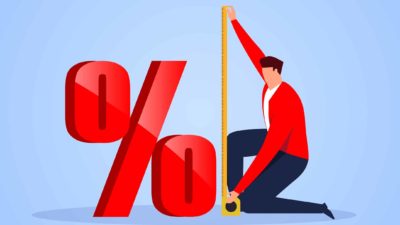With the drastic drop in many valuations over the past month, it is increasingly tempting to buy shares for the long term in the S&P/ASX 200 Index (ASX: XJO) and the All Ordinaries (ASX: XAO). However, I believe that ASX investors shouldn't necessarily buy what appear to be 'cheap' shares in this bear market, without taking time to consider the broader economic climate.
Here are 3 reasons why you may be better off sitting on your hands for now and waiting for more economic certainty before investing.
Even with government and central bank stimulus, recession looms
The Morrison government has made significant efforts to buoy businesses, assist workers and relief for retirees. The total value of economic stimulus now totals more than $213.6 billion or more than 10% of Australia's GDP. The stimulus package includes:
- $17.6 billion stimulus package including $4.76 billion for $750 payments to welfare recipients and $6.7 billion for businesses for wage subsidies
- $90 billion three-year funding facility to assist banks to continue lending to business
- $66 billion package including a $550 coronavirus supplement to jobseeker payments and a second $750 payment to welfare recipients
- $130 billion support package including $1,500 fortnightly job keeper payment for employers to pass on to employees to keep them in work.
Stimulus and government/central bank intervention is designed to soften the economic repercussions of such adverse shocks to the economy. However, the policies to combat the spread of the epidemic will result in inevitable damage to the economy. The United States, for example, recorded more than 3 million people filing for initial unemployment claims between 14 March and 21 March. This compares to the low-mid 200,000 initial unemployment claims it receives on a weekly basis.
Lockdown halts business operations
The widespread closure of businesses is now enforced and will impact all business activity in one shape or form. While the policy response will help soften the blow, the underlying damage from the coronavirus is inevitable. The question is whether or not global economies will be able to bounce back, or will a sluggish recovery process ensue. Morgan Stanley has taken a pessimistic view that a "global recession in 2020 is now our base case".
Many sectors such as consumer discretionary, retail, hospitality and some industrials will be hit the hardest as physical presence comes to a grinding halt.
Western countries have struggled to flatten the curve
The United States, Italy and Spain have overtaken China in confirmed cases of COVID-19. Many European countries continue to surge in cases, reiterating the uncertainty of how soon the world will return to normal. On the flip side, Australia has shown early signs of flattening the curve with daily increases in cases dropping from 25–30% just over a week ago to 9% this week.
Foolish takeaway
The ongoing uncertainty will continue to add to share price volatility and the withdrawal of earnings guidance. At this stage, I would personally prefer to wait for more economic data on how countries are coping and any improvements in virus containment before entering the market.








